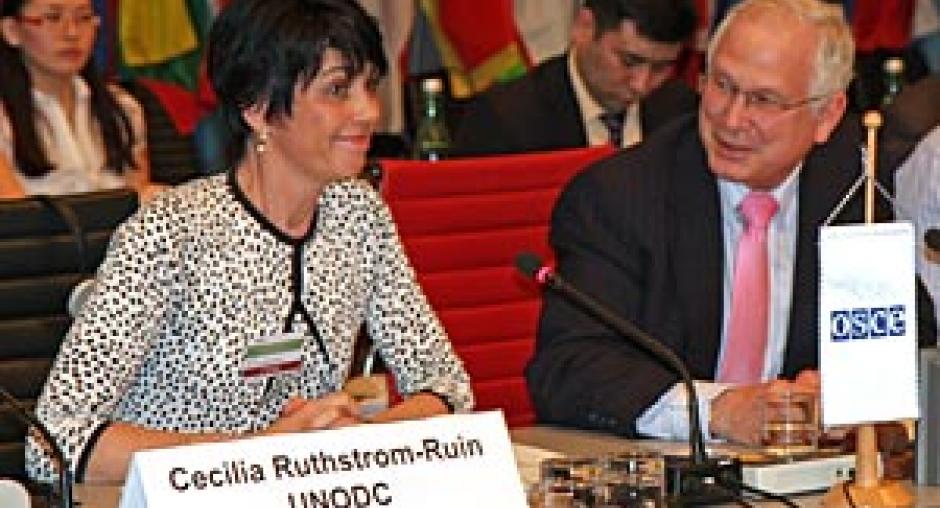OSCE workshop in Vienna promotes international legal framework against terrorism

VIENNA, 29 April 2010 -An OSCE workshop that starts in Vienna today encourages OSCE participating States to become party to and implement four international counter-terrorism instruments that provide for better legal tools in the fight against terrorism.
The 1.5-day day workshop, organized in partnership with the United Nations Office on Drugs and Crime, promotes four universal anti-terrorism instruments that were concluded in 2005:
- The International Convention for the Suppression of Acts of Nuclear Terrorism,
- The Amendment to the Convention on the Physical Protection of Nuclear Material,
- The Protocol to the Convention for the Suppression of Unlawful Acts against the Safety of Maritime Navigation,
- The Protocol to the Protocol for the Suppression of Unlawful Acts against the Safety of Fixed Platforms Located on the Continental Shelf.
So far, 30 of the 56 OSCE participating States have ratified the International Convention for the Suppression of Acts of Nuclear Terrorism, but the ratification of or accession to the remaining three treaties is considerably lower, and the workshop aims at adding additional impetus to this process.
The Deputy Permanent Representative of Kazakhstan to the OSCE, Akan Rakhmetullin, underlined that the OSCE could contribute to speeding up the accession by participating States to these instruments, just like it did by supporting the ratification and implementation of 12 older anti-terrorism conventions and protocols.
"The workshop should result in a better understanding of the need for participating States to become party to all the universal legal instruments against terrorism," he said. "It will demonstrate how the conventions and protocols can be incorporated into national legislation and implemented to give the countries the ability to prosecute terrorist suspects and co-operate in line with the highest standards of international law."
OSCE Foreign Ministers in 2009 adopted a decision that called on OSCE participating States to consider becoming party to the 2005 instruments "and to fully implement their provisions".
Workshop participants will discuss model counter-terrorism legislation prepared by the UNODC Terrorism Prevention Branch (TPB). The chief of that branch, Cecilia Ruthstrom-Ruin, commended close co-operation between the OSCE and the UNODC and said that TPB would assist any requesting OSCE participating State.
"Over the years, our organizations have consistently made efforts to create synergies and endeavour toward the common objective of countering terrorism and enhancing the efficiency of criminal justice systems of our member countries," she said.
